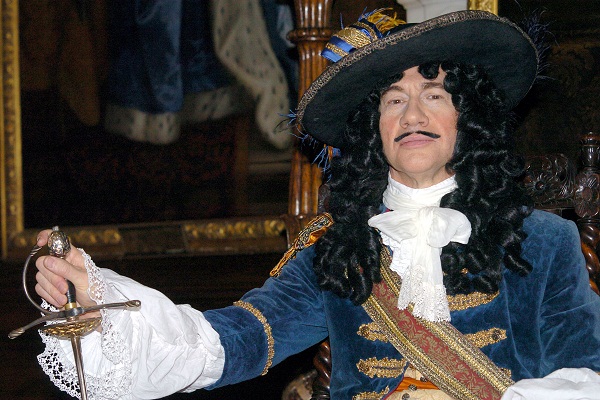350 years ago, Charles II ruled over a Britain whose destiny – as a world power or a defeated backwater – was intricately tied to its relations with Europe.
The King’s chief minister was the Lord Chancellor Edward Hyde, Earl of Clarendon. Sober and high-principled, Clarendon favoured alliance with the Hapsburg powers of Spain and Austria simply because they were the most powerful rivals of France.
But Charles II did not pursue such a policy consistently. Throughout his reign, Britain’s relations with France vacillated between open hostility and close friendship. Why?
A close study of the original records reveals a triangle of very human relationships at work in the Stuart court. Besides Clarendon, another powerfully influential character emerges by Charles’s side – the yang to Clarendon’s ying – Henry Jermyn. Flamboyant and sociable, Jermyn’s influence at Court rested on his close friendship with Charles’s French Catholic mother, Queen Henrietta Maria (Pepys even thought they were married).
Jermyn’s grand political vision was of a Special Relationship with France. He had known both Charles II and Louis XIV throughout their lives and wrote in 1662 of his plan that they would be ‘preserved so very much by the[ir] happy union’ that ‘they will have very little to fear either from foreign enemies or domestic embroilments’. It was by this means that Britain might become a truly great world power. Charles trusted both Jermyn and Clarendon and – despite the polar opposites of their policies – was heavily influenced by both.
Both men understood each other’s strengths and weaknesses. Jermyn knew that Charles ‘likes not to be over pressed with such knotty and intricate things’, so that when Clarendon had the King ‘with him among his papers’ he could easily ‘lead him to a resolution’. In other words, Clarendon could simply bore the King into agreeing with him.
Jermyn was an eminently more charismatic puppet-master. ‘He was bred from his cradle in the Court’, wrote Hyde, ‘and had no other business in the world than to be a good Courtier, in the arts whereof he succeeded so well’. Once the official business of the day was over, Jermyn could change the King’s mind whilst chatting affably over dinner, or sharing a joke at the gaming table.
Clarendon and Jermyn had vied with each other for power ever since Charles II was a boy. Long before the Restoration, when Charles II lived with his mother in Paris, Jermyn was ‘employed and trusted as Premier Ministre in the management of all his Majesty’s greatest and most secret affairs’, as Hyde’s crony Secretary of State Nicholas complained in 1653.
When the French forced Charles to leave Paris for the Low Countries, Jermyn stayed behind with the Queen and Hyde’s influence returned. We hear of Jermyn plotting for Clarendon ‘to be put out’ so that he, Jermyn, might be ‘brought in’ in the Restoration year, 1660.
Clarendon avoided being ‘put out’, so the 1660s began with him firmly at the helm of the government. But if that was his victory over Jermyn, it was a pyrrhic one. First, Jermyn gained from Charles a series of diplomatic appointments in France and used these to further his own, pro-French policies. Secondly, it was Clarendon, as Charles’s chief minister who bore the brunt of the blame for the failure of Britain’s war with Holland in 1667, and was exiled in disgrace. Jermyn had already settled into a subtler role, of éminence grise, working effectively behind the scenes of seventeenth century court politics to achieve his long-term aim.
Henry Jermyn’s pro-French policies led eventually to Charles II gaining a massive financial subsidy from France, which enabled him to rule for the rest of his life without needing to summon his increasingly anti-French Parliament: the Absolute Monarch Jermyn had always wanted him to be.
And through the marriage Jermyn had engineered between Charles and Catherine, daughter of France’s ally the King of Portugal, he gained for Britain the trading-post of Bombay, laying the foundations for the British Empire in India.
Anthony Adolph, author of The King’s Henchman. Henry Jermyn, Stuart Spymaster and Architect of the British Empire (Gibson Square)







Comments